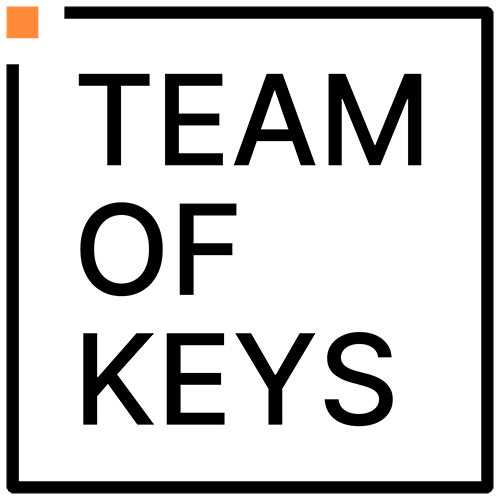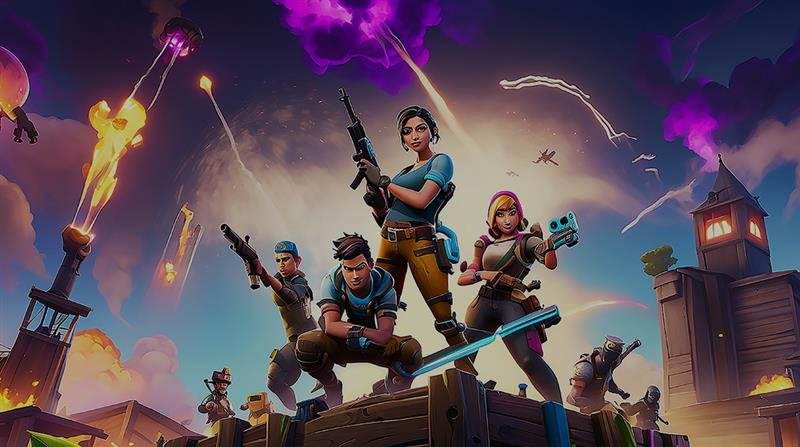Game development isn’t just about great graphics or compelling stories; it’s about how the game plays. Enter the world of game mechanics, the true heartbeat of every interactive experience. At Team of Keys, where technology meets storytelling, we believe understanding it is essential for both developers and players. Whether you’re a curious beginner or an indie enthusiast, you will find this guide insightful. If you're a client wanting to know what makes it “work,” this guide covers the core concepts you need to understand.
What Are Game Mechanics?
In simple words, game mechanics are the rules as well as systems that govern player interaction. They define how the player moves, shoots, jumps, collects items, levels up, solves puzzles, and ultimately, wins or loses.
Why Are Game Mechanics So Important?
Great mechanics make a game feel good. They give players a sense of flow, challenge, reward, and satisfaction. From a game development standpoint, they are where design meets function. They determine:
- User engagement
- Difficulty balance
- Pacing and progression
- Replayability
When we build games, they are at the center of our design process. This applies whether it’s a console shooter or a mobile strategy hit.
Core Categories of Game Mechanics
Let’s break down some foundational categories that will help you get familiar with the basics.
1. Movement Mechanics
These govern how the player moves in the gaming world.
- Platformers like Super Mario use jumping, running, and wall-climbing.
- First-person shooters (FPS) like Call of Duty involve sprinting, crouching, and aiming.
In our own action and shooter gaming, we refine movement physics down to the smallest detail. We focus on acceleration curves and jump height. This ensures every step and shot feels real.
2. Combat Mechanics
Combat is at the core of many genres, especially in shooters, RPGs, and strategy gaming.
- Turn-based vs real-time combat.
- Melee vs ranged attacks.
- Cover systems, combo chains, critical hits, all of these are designed with intent.
We excel in crafting cinematic combat systems that are responsive and balanced, offering both casual fun and a competitive edge.
3. Progression Mechanics
Progression keeps players coming back.
- XP systems, level-ups, unlockables, and skill trees.
- Reward loops that make players feel they’re growing and improving.
Whether it’s customizing weapons or unlocking new characters, it must be well-paced. It should not progress too fast to cause boredom. It also should not be so slow as to cause frustration.
4. Resource Management
These revolve around strategic decision-making.
- Managing health, ammo, inventory space, or in-game currency.
- In survival games, balancing hunger, weariness, and weather is critical.
A well-designed resource system adds depth and encourages planning and foresight. It transforms a simple shooter into a strategic experience.
5. Risk vs Reward Systems
Every game needs tension, a reason to push ahead.
- Do you risk fighting a tough enemy for rare loot?
- Should you search the dark cave for a shortcut?
This balance of risk vs reward is what hooks players and keeps them engaged.
6. Environmental Interaction
Modern players expect dynamic worlds.
- Climb, push, swim, drive; these actions immerse players into believable environments.
- Destructible objects, weather systems, and AI behaviors can enhance this interaction.
We use custom physics engines and dynamic interactions to create worlds. These worlds respond to player actions not just visually. They also respond mechanically.
How Game Mechanics Shape Genre
Each genre has a specific set of it that defines its identity:
| Genre | Key Mechanics |
| FPS | Shooting, aiming, movement, and health regen |
| RP | Dialogue trees, inventory, and leveling |
| Strategy | Unit control, resource gathering, and timing |
| Puzzle | Logic gates, pattern matching, triggers |
| Platformer Strategy | Jumping, timing, momentum |
Understanding this lets developers choose the right mechanics to match the player’s expectations, or creatively break the mold.
Pro Tips for Beginners
Want to start building your own game mechanics? Here are some tips from our developers:
- Start small: Prototype one mechanic at a time.
- Playtex often: Watch real users and tweak suitably.
- Focus on feel: It’s not just what a mechanic does, but how it feels to do it.
- Steal like an artist: Learn from great games, then make it your own.
- Balance is everything: Poor balance is especially detrimental to multiplayer gameplay.
Final Thought
Whether you are dreaming of your indie hit or you're developing an educational game. Maybe you need a full-scale AAA shooter built from scratch. We have the technical team and creative vision to bring your ideas to life. We craft these at our game development company that aren’t just functional, they’re unforgettable. From the first button press to the final boss fight, we design experiences that captivate players and drive success.











